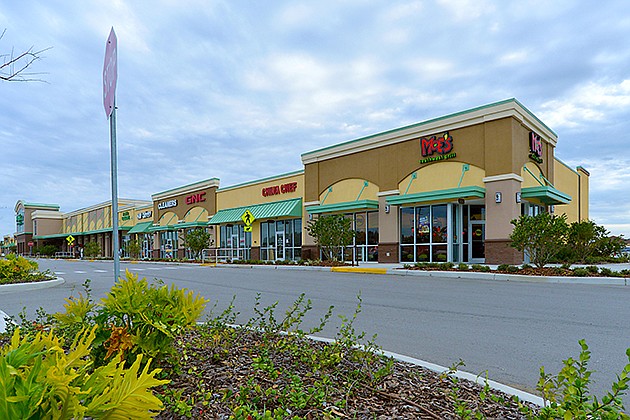Despite a lack of new ground-up shopping center development in the years since the recession, the retail market in the Tampa Bay area remains robust — especially for restaurants, convenience stores and grocers eager to expand into the Sunshine State.
That was the mood emanating from many of the vendors and roughly 750 participants at the International Council of Shopping Centers' mid-February conference at the Tampa Convention Center.
Thanks in large part to population gains and job growth regionwide, retail developers and merchants appear optimistic the wave of consumer confidence will continue into the foreseeable future.
And while development has been concentrated among triple net lease deals largely for pad sites — think a stand-alone Starbucks or a corner CVS Pharmacy — occupancy at more traditional strip centers has been firming, too, a phenomenon that has pushed rents up slightly for the first time since 2008.
“By the look of things, the market is still pretty active,” says Paul Rutledge, a first vice president at commercial real estate services firm CBRE Inc. who specializes in retail properties.
“I spoke to many vendors who were full up with business for this year and who were looking for deals to do in 2018 and beyond,” Rutledge says of the ICSC confab. “And because there's been increased occupancy, especially in the Pinellas and Hillsborough County markets, we're seeing pressure on rents, causing them to go up. That's significant, because we've not seen that as part of this recovery.”
Mike Milano, managing director of retail services for commercial real estate firm Colliers International Tampa Bay, says the level of retail activity should remain steady -- despite macro-economic changes in the way Americans shop and the ascendency of online commerce.
“I think we're going to be in this current pattern for awhile,” Milano says. “Overall the mood from the conference was positive and upbeat. Florida continues to do well economically and with population growth. The one thing that's different is that we're not seeing a lot of new construction in this recovery cycle.”
Instead, Milano says developers and retailers are scouring sites for infill development in mature areas and for redevelopment opportunities.
“Redevelopment was a big buzzword at the conference,” Milano says. “Properties are being repurposed or re-tenanted, and that's become a big focus in Tampa and in Pinellas County, because those areas are fully developed.”
Milano says redevelopments like the one occurring at Tyrone Square Mall and University Mall will accelerate as developers strive to reach existing population clusters.
Rutledge notes, as well, that consumer orientations are changing and in many cases causing tectonic shifts in Gulf Coast retail markets away from traditional retail hubs.
Traditional mall anchors like Sears and Macy's, for instance, have struggled over the past few years while discounters and service-oriented merchants have generated considerable growth.
He doesn't believe, however, that online shopping will dramatically negate bricks-and-mortar retailing going forward.
“The internet isn't killing retailing,” Rutledge says. “It's just that traditional retailers are morphing into it.”
More noticeable, both Rutledge and Milano say, is the bifurcation of the market as consumers gravitate to well-maintained, well-tenanted and especially well-located centers that are relatively convenient.
“Well-located properties are doing really well while more marginal properties are lagging,” Milano says. “Increasingly, there's more of a division happening between best-in-class retail properties and those that aren't.”
That shift is affecting investor sentiment as well, he contends.
“Buyers of retail properties are becoming more discriminating,” he says. “There's a lot more attention being paid among investors to the amount of risk they may have to take on, and a heightened sense of awareness and caution about what people are buying and at what prices.”
He adds that much of that caution springs from the point in the real estate cycle Florida is in.
“Look, we're now two years past the traditional end of what is typically a growth cycle here. Overall, the market is healthy and I think it will remain that way. It's not a bad thing that there's more evaluation going on.”






